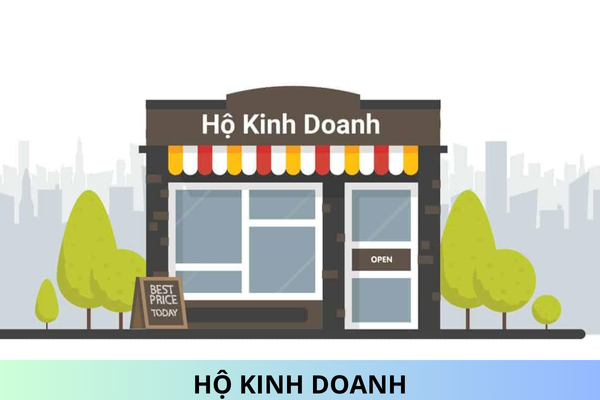Which Cases Are Exempt from Paying for Electronic Invoices with Tax Authority Codes?
What is an electronic invoice?
Based on Clause 2, Article 3 of Decree 123/2020/ND-CP, an electronic invoice is an invoice with or without a tax agency code, presented in electronic data form by the organization or individual selling goods and providing services using electronic means to record information on the sale of goods and provision of services in accordance with accounting and tax laws. This includes invoices generated from cash registers connected to the tax agency's electronic data transfer:
- An electronic invoice with a tax agency code is an electronic invoice that is issued a code by the tax agency before the organization or individual selling goods and providing services sends it to the buyer.
- An electronic invoice without a tax agency code is an electronic invoice issued by the organization selling goods and providing services to the buyer without the tax agency's code.

Under which circumstances is there no charge for using electronic invoices with a tax agency code? (Image from Internet)
What contents must be included in an electronic invoice?
According to Article 10 of Decree 123/2020/ND-CP, the content of an electronic invoice must include:
Invoice name, invoice symbol, invoice form number symbol;
Name of invoice copy applicable to invoices printed by the tax agency as per the guidance of the Ministry of Finance;
Invoice number;
Name, address, tax code of the seller;
Name, address, tax code of the buyer;
Name, unit of measurement, quantity, unit price of goods and services; total amount excluding value-added tax, value-added tax rate, total value-added tax amount for each tax rate, total value-added tax amount, total payment amount including value-added tax;
Signature of the seller, signature of the buyer;
Invoice creation time as guided in Article 9 of Decree 123/2020/ND-CP, displayed in the format of day, month, and year of the Gregorian calendar;
Digital signature time on the electronic invoice, which is the time the seller and buyer use digital signatures to sign the electronic invoice, displayed in the format of day, month, and year of the Gregorian calendar. If the electronic invoice created has a signing time different from the invoice creation time, the tax declaration time is the invoice creation time;
Tax agency’s code on the electronic invoice with the tax agency’s code as regulated in Clause 2, Article 3 of Decree 123/2020/ND-CP;
Fees, charges under the state budget, trade discounts, promotions (if any) as per the guidance at point e, clause 6, Article 10 of Decree 123/2020/ND-CP and other related contents (if any);
Name, tax code of the organization printing the invoice as per the tax agency's arrangement;
Writing, digits, and currency on the invoice;
Other contents on the invoice.
Additionally, some electronic invoices do not necessarily include all the contents detailed in Clause 14, Article 10 of Decree 123/2020/ND-CP.
Under which circumstances is there no charge for using electronic invoices with a tax agency code?
According to Clause 1, Article 14 of Decree 123/2020/ND-CP, the provision of electronic invoice services is regulated as follows:
Provision of electronic invoice services
- The case of using electronic invoices with a tax agency code without paying service charges for 12 months from the start date includes:
a) Small and medium enterprises, cooperatives, households, and individuals doing business in areas with difficult socio-economic conditions, areas with particularly difficult socio-economic conditions. Areas with difficult socio-economic conditions, areas with particularly difficult socio-economic conditions shall be implemented as per the investment incentive area list issued with Decree 118/2015/ND-CP dated November 12, 2015, of the Government of Vietnam detailing and guiding the implementation of some articles of the Investment Law and subsequent amending documents if any.
b) Other small and medium enterprises as proposed by the provincial People's Committee to the Ministry of Finance, excluding enterprises operating in economic zones, industrial parks, and high-tech parks.
....
Thus, the case of using electronic invoices with a tax agency code without paying service charges for 12 months from the start date includes:
- Small and medium enterprises, cooperatives, households, and individuals doing business in areas with difficult socio-economic conditions, and areas with particularly difficult socio-economic conditions.
Areas with difficult socio-economic conditions, and areas with particularly difficult socio-economic conditions shall be implemented as per the list of investment incentive areas issued with Decree 118/2015/ND-CP and subsequent amending documents if any.
- Other small and medium enterprises as proposed by the provincial People's Committee to the Ministry of Finance, excluding enterprises operating in economic zones, industrial parks, and high-tech parks.
The General Department of Taxation shall provide or authorize organizations providing electronic invoice services to provide electronic invoices with a tax agency code without charging service fees to the above-mentioned entities.
Additionally, according to Clause 2, Article 14 of Decree 123/2020/ND-CP, businesses, economic organizations, households, and individuals not included under Clause 1, Article 14 of Decree 123/2020/ND-CP, when using electronic invoices with a tax agency code or electronic invoices without a tax agency code through service providers, shall pay service fees as per the contract signed between the parties.










